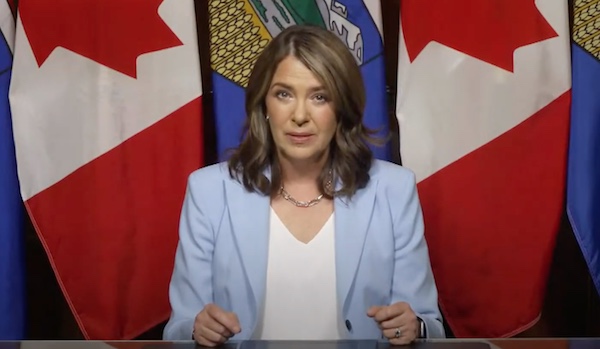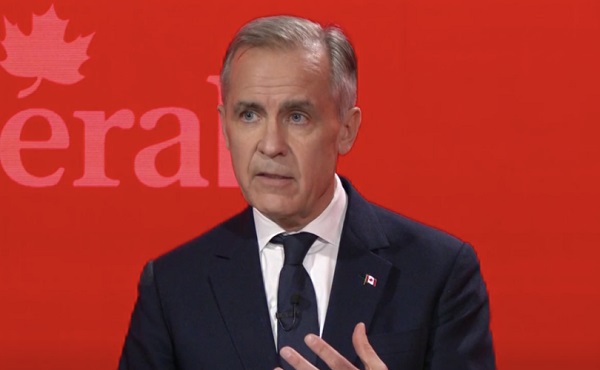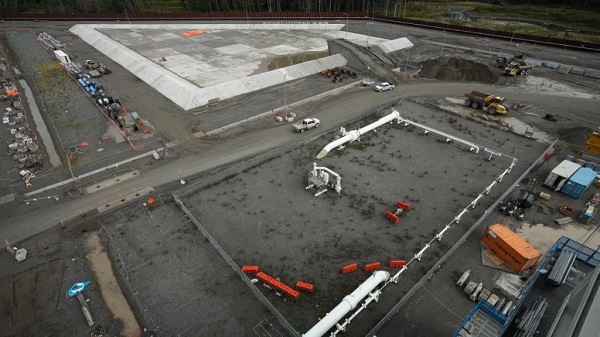Alberta
INDUSTRY-INDIGENOUS RELATIONS: A TREND TOWARD DEEPER ENGAGEMENT

INDUSTRY-INDIGENOUS RELATIONS: A TREND TOWARD DEEPER ENGAGEMENT

The Canadian oil and natural gas industry has a strong history of engagement with Indigenous peoples. Since its early initiatives, the petroleum sector has had many learnings and opportunities for growth with respect to its interactions with Indigenous communities. Consequently, these relationships have evolved towards ever-deepening forms of engagement including consultation and business partnerships. However, the nature of these relationships has been difficult to communicate with credibility; arrangements between companies and communities are often confidential, thus limiting the ability of industry to share positive stories of engagement.
The Canadian Association of Petroleum Producers (CAPP), an association that represents Canada’s oil and natural gas producers, has utilized multiple surveys of its members in order to better understand the relationship between industry and Indigenous peoples. One of these surveys, known as the Telling Our Story survey, was commissioned by CAPP and conducted by Dr. Ken Coates of the University of Saskatchewan. Additionally, CAPP developed its own survey focused on procurement, community investment and consultation capacity funding in the oil sands. These surveys provide data that demonstrate the value producers place on building long-term, sustainable relationships with Indigenous communities. In particular, economic engagement is viewed as a primary opportunity to establish good relations and support Indigenous self- determination.
Survey Methodology
The purpose of the Telling Our Story survey was to collect information about the oil and natural gas industry’s efforts to engage Indigenous communities. Research was conducted by Dr. Ken Coates, Canada Research Chair in Regional Innovation at the Johnson-Shoyama Graduate School of Public Policy, University of Saskatchewan. Dr. Coates used a comprehensive survey of industry representatives, in partnership with CAPP, plus CAPP’s member companies and partner associations including the Canadian Council for Aboriginal Business, the Petroleum Services Association of Canada, the Canadian Energy Pipeline Association, and the Canadian Association of Geophysical Contractors. A total of 122 companies participated in the study, representing a cross-section of the oil and natural gas industry in Canada. Data was collected in a confidential manner, anonymized and aggregated into a final report. The survey highlighted key themes related to industry’s engagement with Indigenous communities.
Consultation and Community Engagement
Companies within the oil and natural gas industry have developed long-term relationships with communities, and these relationships are multifaceted. Of course, a core aspect of relationship-building takes place through consultation processes. The trend toward consultation accelerated in 2004 with the Supreme Court of Canada decision on Haida Nation v. British Columbia, which determined the Crown has a duty to consult and accommodate Indigenous peoples when making a decision that could affect their constitutional rights. Procedural aspects of this duty can be delegated to industry, and now industry conducts the majority of project consultations. Survey respondents noted that today, companies are actively engaged in this process, seeking to ensure meaningful, two-way discussion in consultations. CAPP members indicated that they view these relationships formed through consultation as critically important to their business. Many companies have teams of staff dedicated to consulting and building relationships with communities, and funding is often provided to support community capacity to engage in consultations. A separate survey of CAPP’s oil sands members found that between 2015 and 2016, oil sands operators provided $40.79 million for consultation capacity funding to local Indigenous communities.
Associated with consultations are a variety of forms of engagement. CAPP’s members placed particular value on supporting various community activities, social and cultural priorities, and infrastructure needs. The aforementioned survey of oil sands members found that between 2015 and 2016 operators in the region spent $48.6 million on Indigenous community investment. According to companies, these focused investments positively impact relationships. Furthermore, there has been a trend toward the negotiation of long- term, collaborative agreements between project proponents and Indigenous communities in areas of operation that address community concerns and include clauses related to procurement, employment, community investment, dispute resolution, capacity funding and other topics of importance to the proponent and the community.
Economic Engagement
According to oil and natural gas producers, there is a strong emphasis on economic engagement as the priority in building relationships. In particular, procurement – the purchasing of goods and services from Indigenous businesses – presents a significant opportunity for mutual benefit. Both joint venture partnerships and preferential contracting arrangements with Indigenous-owned companies enable companies to build links and trust with communities. The focus on these arrangements is evidenced by substantial financial investment: in 2015 to 2016, oil sands producers spent $3.3 billion on procurement from 399 Indigenous owned- companies in 65 Alberta communities. While a sizable proportion of Indigenous businesses may be small or new, the data suggests their role in the sector will continue to increase.
This type of engagement allows Indigenous peoples to leverage their own expertise, build capacity, and ultimately establish pathways to prosperity. In this regard, industry can play an important role in supporting successful, self-determining communities. Although procurement was ranked most highly in terms of its benefit to the relationship between producers and communities, there are other forms of economic engagement; a number of companies have Indigenous recruitment strategies and support training programs intended to build the technical skillset of Indigenous employees and contractors.
Conclusion
The research commissioned by CAPP highlights the emphasis that oil and natural gas sector companies place on meaningful consultation, partnerships, and in particular, economic engagement. Industry has made strides in building deeper partnerships, and it is expected that the trend toward more meaningful engagement will continue. As an industry association, CAPP believes the oil and natural gas sector has an important role in tangibly advancing reconciliation together with Indigenous peoples in response to the Truth and Reconciliation Commission’s Call to Action 92. CAPP believes its role in reconciliation can be described as identifying and finding feasible ways to share economic opportunities arising from resource development, while continuing to learn, grow and improve strong relationships based on trust, respect, and open communication. Industry’s understanding will continue to develop, and the sector is open to further dialogue in order to inform its understanding of industry’s role in reconciliation.
Thanks to Todayville for helping us bring our members’ stories of collaboration and innovation to the public.
Click to read a foreward from JP Gladu, Chief Development and Relations Officer, Steel River Group; Former President and CEO, Canadian Council for Aboriginal Business.

JP Gladu, Chief Development and Relations Officer, Steel River Group; Former President & CEO, Canadian Council for Aboriginal Business
Click to read comments about this series from Jacob Irving, President of the Energy Council of Canada.

Jacob Irving, President of Energy Council of Canada
The Canadian Energy Compendium is an annual initiative by the Energy Council of Canada to provide an opportunity for cross-sectoral collaboration and discussion on current topics in Canada’s energy sector. The 2020 Canadian Energy Compendium: Innovations in Energy Efficiency is due to be released November 2020.
Click below to read more stories from Energy Council of Canada’s Compendium series.
PETER SUTHERLAND SR GENERATING STATION POWERS NORTHEAST ONTARIO
Alberta
Saudi oil pivot could shake global markets and hit Alberta hard

This article supplied by Troy Media.
 By Rashid Husain Syed
By Rashid Husain Syed
Riyadh is walking away from its role as oil market stabilizer, signalling a return to market-share battles that threaten prices and Canadian revenues
After boosting crude oil output by 411,000 barrels per day (bpd) in May—triple the originally planned volume—OPEC+ shocked observers by intending to repeat the increase in June, despite slowing global demand and the dampening effects of U.S. trade tariffs.
The decision has ripple effects far beyond the Middle East. OPEC+—the alliance of the Organization of Petroleum Exporting Countries and allies such as Russia—collectively controls about 40 per cent of the world’s oil production. Its actions directly influence global oil prices, which in turn affect everything from gasoline prices across Canada to government revenues in resource-dependent provinces like Alberta.
Is OPEC+ sabotaging itself?
The move contradicts the group’s modus operandi of the past several years. Since 2016, OPEC+, led by Saudi Arabia, has tried to balance global oil markets by curbing output. At its peak, the group cut production by more than five million barrels per day—about five per cent of global supply—with Saudi Arabia alone contributing two-fifths of that total.
This strategy was meant to stabilize prices and ensure petrostates such as Saudi Arabia could meet ballooning budget demands. Many OPEC members remain heavily reliant on oil revenues to fund government spending, with few alternative income streams.
But after years of shouldering the burden, Riyadh appears to have had enough. Reuters recently reported that Saudi officials have been quietly telling allies and industry experts the kingdom is no longer willing to continue absorbing the cost of propping up global prices through deeper cuts.
There is logic behind this frustration. Despite OPEC+ efforts, markets remain volatile. Crude has dropped about 19 per cent this year, briefly touching a four-year low, mainly due to fears that U.S. tariffs will reduce global energy demand.
Some of this instability can be traced to cheating within OPEC+. Several members, including Iraq, Kazakhstan and Russia, have regularly exceeded their quotas, often at Saudi Arabia’s expense.
Riyadh’s patience appears to have run out. “OPEC’s decision framework appears to be fueled by persistent cheating,” noted TD Cowen strategists Dan Ghali and Bart Melek. The group warned in a note to clients that inventories could rise by 200 million barrels in the next three quarters, potentially pushing crude prices into the low US$50 range.
Saudi Arabia has no intention of sacrificing more market share to cover for others. This echoes an earlier episode when former Saudi oil minister Ali AlNaimi, frustrated by similar quota violations and the rise of U.S. shale producers, chose to flood the market to protect Saudi interests. In 2016, he famously told American drillers they could “lower costs, borrow cash or liquidate” as prices sank below US$50 per barrel.
The result was carnage in the oil patch—and a temporary ceasefire among producers.
History may be repeating itself. With other OPEC+ members again failing to meet targets, sources told Reuters that Riyadh is now shifting strategy. Rather than continuing to play the role of swing producer, Saudi Arabia may focus on regaining market share by boosting production, effectively stepping back from the group’s five-year effort to balance prices.
Despite its dependency on oil revenues, the kingdom appears ready to endure lower prices. Media reports quoting government sources suggest Saudi Arabia may increase borrowing and scale back spending to compensate. “The Saudis are ready for lower prices and may need to pull back on some major projects,” one insider told Reuters.
Saudi Arabia needs prices above US$90 per barrel to balance its budget—a higher threshold than other major producers such as the United Arab Emirates, according to the International Monetary Fund (IMF).
Theories abound about the motivations behind the kingdom’s apparent policy shift: retaliation against quota-busting allies, competition with emerging producers like the United States and Guyana, or even an attempt to please U.S. President Donald Trump, who has publicly called for higher OPEC output to ease gasoline prices.
Whatever the motivation, the consequences are real. The IMF has lowered its economic growth forecast for oil-exporting Middle East countries to 2.3 per cent from four per cent projected in October, citing lower prices and rising geopolitical uncertainty. It also revised Saudi Arabia’s growth outlook to three per cent from 3.3 per cent after oil prices fell 13 per cent in the past month alone. This has implications far beyond the Middle East, including for Canada. For Alberta, where oil sales remain a pillar of the economy, weakening global prices mean reduced royalties, tighter fiscal planning and less room for public investment.
As global oil markets enter another uncertain chapter, the aftershocks will be felt from Riyadh to Edmonton.
Toronto-based Rashid Husain Syed is a highly regarded analyst specializing in energy and politics, particularly in the Middle East. In addition to his contributions to local and international newspapers, Rashid frequently lends his expertise as a speaker at global conferences. Organizations such as the Department of Energy in Washington and the International Energy Agency in Paris have sought his insights on global energy matters.
Troy Media empowers Canadian community news outlets by providing independent, insightful analysis and commentary. Our mission is to support local media in helping Canadians stay informed and engaged by delivering reliable content that strengthens community connections and deepens understanding across the country.
Alberta
Premier Smith seeks Alberta Accord: Announces new relationship with Ottawa

Premier Danielle Smith addressed Albertans on the province’s path forward with the federal government following a meeting with the Alberta government caucus.
I will soon appoint a Special Negotiating Team to represent our province in negotiations with the federal government on the following reforms requested by our province. We hope this will result in a binding agreement that Albertans can have confidence in – call it an Alberta Accord if you will.
My fellow Albertans
Today, I wish to speak to you about the future of Alberta and Canada.
Albertans have always been loyal, proud and generous Canadians.
We love Canada. We have fought wars and died defending Canada. We have opened our doors wide for millions of our fellow Canadians searching for opportunity – many of whom stay and become Albertan, and many who return home to their native province. All have been welcomed with open arms.
Our province has contributed hundreds of billions of dollars more to the federal treasury for use in other parts of the country than we’ll ever receive back in benefits. We have allowed this to occur because, quite frankly, we know how blessed our province is with an endowment of natural resources that no other country on earth possesses – and we want all of our friends, families and fellow Canadians across the country to benefit from it.
We do not ask for special treatment or handouts.
We just want to be free. Free to develop and export that incredible wealth of resources we have for the benefit of our families and future generations. Free to pursue opportunities with the ideals of entrepreneurship, hard work and innovation that have become synonymous with the name of our province. Freedom to choose how best to provide health care, education and other needed social services to our people – even if its done differently than what Ottawa has in mind.
Strong and Free is more than just our provincial motto – it represents who we are and how we want to live as a people.
And that is why Albertans are so frustrated with the direction of our country.
For the last 10 years, successive Liberal Governments in Ottawa – supported by their New Democrat allies – have unleashed a tidal wave of laws, policies and political attacks aimed directly at Alberta’s free economy – and in effect – against the future and livelihoods of our people.
They have blocked new pipelines with C-69, cancelled multiple oil and gas projects, and banned the very tanker ships needed to carry those resources to new markets.
They have stacked an oil and gas production cap on top of a crippling industrial carbon tax, making new energy and agricultural projects economically impossible to pursue without massive subsidies from governments – which Ottawa has failed to provide and which our taxpayers cannot afford.
This onslaught of anti-energy, anti-agriculture and anti-resource development policies have scared away global investment to the tune of over a half a trillion dollars – driving those investments and jobs out of Alberta and Canada to much more attractive investment climates in the United States, Asia and the Middle East.
Having travelled much of the world these past few years, it is evident that Canada is not viewed as an attractive place to invest in resource development, manufacturing or agriculture because of our high carbon taxes, endless red tape, and the uncertainty and chaos brought about by these and other federal government policies.
As a result, Canada has fallen to dead last in economic growth among industrialized nations. The world looks at us like we have lost our minds. We have the most abundant and accessible natural resources of any country on earth – and yet we landlock them, sell what we do produce to a single customer to the south of us, while enabling polluting dictatorships to eat our lunch.
For Albertans – these attacks on our province by our own federal government have become unbearable.
As I said, these policies have cost Albertans roughly a half a trillion dollars in investment – and that loss is growing daily. It has and will continue to cost hundreds of thousands of jobs, robbing countless Albertans and other Canadians of their means of providing for their families. It has cost us a decade of opportunities and tens of billions in lost royalties that could have been invested in the health, education, infrastructure and social services Albertans and Canadians need.
And what’s worse, Ottawa continues onward with more destructive policies.
They have imposed net-zero mandates on our natural gas-based power grid causing investment in reliable generation from natural gas to flee, thereby endangering the future stability of our power grid, and risking future blackouts and spikes in electricity costs for Alberta families and businesses.
They have attacked our food producers with methane taxes, onerous regulations on fertilizer, electric vehicle mandates, and many other destructive policies that have hiked costs on our farmers and ranchers, and driven billions of dollars of investment in agriculture elsewhere.
They have interfered in provincial jurisdiction time and again. From taking over the regulation of plastics, to mandating how we operate child care, health care and dental care, to harassing law abiding firearms owners, to dozens of other examples of unconstitutional interference.
And of course, Alberta has fought back. We always have and always will.
We passed the Sovereignty within a United Canada Act and have invoked it twice to protect Albertans as best we can from the effects of the net zero electricity regulations and energy production cap.
We have beat the feds in court on both the “no new pipelines law” C-69 and their attempt to regulate plastics (though they have ignored both court decisions to this point) — and we have just announced a court challenge on the net zero electricity regulations and are further preparing to also challenge the energy production cap.
We continue to do all in our power to counteract Ottawa’s chill on investment in energy, agriculture and our other job sectors through various tax cuts and incentive programs which greatly strain the provincial budget.
We have fought these attacks from Ottawa furiously and have won some important battles, but the lost opportunities, jobs and futures of so many Albertans are costly and demoralizing — as are the growing number of eastern politicians who choose to openly demonize and target Alberta for political gain.
That is why a large majority of Albertans are so deeply frustrated with the results of last week’s federal election.
It’s not that our preferred candidate and party lost. That happens in a democracy.
It’s that the same Liberal government with almost all of the same Ministers responsible for our nation’s inflation, housing, crime and budget crisis, and that oversaw the attack on our provincial economy for the past 10 years – have been returned to power.
Now, as we all know, one thing has changed. We have a new Prime Minister. And I will say that in my first conversation with him since the election, he had some promising things to say about changing the direction of his government’s anti-resource policies.
However, Albertans are more of a “actions speak louder than words” kind of people.
So while I will in good faith work with Prime Minister Mark Carney on unwinding the mountain of destructive legislation and policies that have ravaged our provincial and national economies this past decade —- until I see tangible proof of real change —- Alberta will be taking steps to better protect ourselves from Ottawa.
As a start, I will soon appoint a Special Negotiating Team to represent our province in negotiations with the federal government on the following reforms requested by our province. We hope this will result in a binding agreement that Albertans can have confidence in – call it an Alberta Accord if you will.
First, Alberta requires guaranteed corridor and port access to tidewater off the Pacific, Arctic and Atlantic coasts for the international export of Alberta oil, gas, critical minerals and other resources in amounts supported by the free market, rather than by the dictates and whims of Ottawa.
Every province in the country, other than Alberta and Saskatchewan, have coastal port access, and no province needs it more given the size and value of our resources. This will benefit all Canadians to the tune of trillions of dollars of economic activity including billions for First Nations’ partners.
Second. The federal government must end all federal interference in the development of provincial resources by repealing the no new pipelines law, C-69, the oil tanker ban, the net zero electricity regulations, the oil and gas emissions cap, the net zero vehicle mandate, and any federal law or regulation that purports to regulate industrial carbon emissions, plastics, or the commercial free speech of energy companies. These laws are destroying investment confidence and costing Canada and Alberta hundreds of billions in investments each year.
They need to go.
Third. The federal government must refrain from imposing export taxes or restrictions on the export of Alberta resources without the consent of the Government of Alberta. Frankly, all provinces should be given that same respect for their resources.
And fourth, the federal government must provide to Alberta the same per capita federal transfers and equalization as is received by the other three largest provinces – Quebec, Ontario and British Columbia. We have no issue with Alberta continuing to subsidize smaller provinces with their needs, but there is no excuse for such large and powerful economies like Ontario, Quebec, B.C. or Alberta to be subsidizing one another. That was never the intent of equalization, and it needs to end.
If these points can be agreed to by the federal government, I am convinced it will not only make Alberta and Canada an infinitely stronger and more prosperous country, but will eliminate the doubts a growing number of Albertans feel about the future of Alberta in Canada.
While these negotiations with Ottawa are ongoing, our government will appoint, and I will chair, the ‘Alberta Next’ panel. This panel will be composed of some of our best and brightest judicial, academic and economic minds, to join with me in a series of in-person and online town halls to discuss Alberta’s future in Canada, and specifically, what next steps can we take as a province to better protect Alberta from any current or future hostile policies of the federal government. Details of the membership and scope of that panel will also be released in the coming weeks.
After the work of the panel is finished, it is likely we will place some of the more popular ideas discussed with the panel to a provincial referendum so all Albertans can vote on them sometime in 2026.
To be clear from the outset, our government will not be putting a vote on separation from Canada on the referendum ballot; however, if there is a successful citizen-led referendum petition that is able to gather the requisite number of signatures requesting such a question to be put to a referendum, our government will respect the democratic process and include that question on the 2026 provincial referendum ballot as well.
I also want to state unequivocally that as Premier, I am entirely committed to protecting, upholding and honouring the inherent rights of First Nations, Métis and Inuit peoples. Therefore, ANY citizen-initiated referendum question MUST not violate the constitutional rights of First Nations, Métis and Inuit peoples, and must uphold and honour Treaties 6, 7 and 8 should any referendum question ever pass. This is non-negotiable.
Now, let’s talk about the elephant in the room – that being separation.
We are well aware that there is large and growing number of Albertans that have lost hope in Alberta having a free and prosperous future as a part of Canada. Many of these Albertans are organizing petitions to trigger a citizen-initiated referendum, as I mentioned earlier. The vast majority of these individuals are not fringe voices to be marginalized or vilified – they are loyal Albertans. They are quite literally our friends and neighbours who have just had enough of having their livelihoods and prosperity attacked by a hostile federal government. They are frustrated – and they have every reason to be.
I want to talk directly to those Albertans.
I know how frustrated so many of you have become with our country and the feeling of having politicians living thousands of miles away passing laws and rules that have cost you or your loved ones, jobs, careers, dreams, and opportunities for a brighter future.
As most Albertans know, I have repeatedly stated I do not support Alberta separating from Canada. I personally still have hope that there is a path forward for a strong and sovereign Alberta within a united Canada. Let me explain a few reasons why.
First, Alberta already has and can continue to use the Alberta Sovereignty within a United Canada Act and other measures to fight through much of Ottawa’s damaging interference and prosper in spite of it. We will also continue our successful battles against these unconstitutional and damaging policies in both the Courts of law and public opinion.
But there is more to be hopeful for. This past election demonstrated that attitudes across the country, especially among young people, are changing with respect to understanding the importance of free markets and the development of our natural resources. People are pushing back against government censorship and ‘cancel culture’. More and more Canadians understand that in order for Canada to play a role in ending conflict and poverty at home and abroad – our country must become strong again. And we can only do that by becoming an energy and economic superpower using the vast and unmatched energy, mineral resources and fertile lands of our country.
85 per cent of Canadians in this last election voted for the two leaders promising to turn Canada into an energy superpower and to build resource corridors, including for oil and gas – while only 13 per cent voted for the fringe voices in the socialist NDP and Bloc parties and their extremist “leave it in the ground” policies.
Obviously, we have a ways to go and it will take a lot of work to undo the damage caused by these last 10 years of Liberal/NDP rule, but that clear change in public opinion gives me hope. I think it should give all Albertans hope
Now, none of us know what the future holds should Ottawa, for whatever reason, continue to attack our province as they have done over the last decade. Ultimately that will be for Albertans to decide and I will accept their judgement.
But I am going to do everything within my power to negotiate a fair deal for Alberta with the new Prime Minister. And while doing so, our government will work with Albertans on various initiatives to better protect Alberta’s provincial sovereignty and economy from Ottawa should those negotiations fail, and the economic attacks continue.
Alberta didn’t start this fight, but rest assured…we will finish it…and come out of it stronger and more prosperous than ever.
In closing, I want Albertans to know how important it will be, in the coming months, for our province to be steadfast, unified and to refrain from heeding the voices of those seeking to divide Albertans against one another.
There will be many outside – and even inside this province – who will try and sow fear and anger among us. They will seek to divide us into different camps for the purpose of marginalizing and vilifying one other based on differing opinions. Effectively pitting neighbour against neighbour — and Albertan against Albertan.
That is not the Alberta way. It’s not who we are. And it’s not who I am.
There are thousands of Albertans that are so frustrated with the last ten years of Ottawa’s attacks on their friends’ and family’s livelihoods that they feel Alberta would be stronger and more prosperous as an independent nation. That is an understandable and justifiable feeling to have even if we disagree on what to do about it. These Albertans are not traitors, nor should they ever be treated as such. They just love their province and family and want a better future than the one Ottawa is offering right now.
There are also thousands of Albertans that are so attached and loyal to their identity as Canadians that there is nothing Ottawa has done to our province that would justify Alberta leaving Canada. Its not that they think everything is perfect or we’ve been treated fairly – they just believe being part of Canada, despite those problems, has much more value than leaving. These individuals are also loyal Albertans and should never be accused of being anything less.
And then there are hundreds of thousands of Albertans that probably feel a lot like I do —- that are deeply frustrated with the way our province has been mistreated and damaged by successive federal Liberal governments and are not willing to tolerate the status quo any longer. But these Albertans still believe there is a viable path to a strong, free and sovereign Alberta empowered to succeed and prosper within a united Canada. A Canada where the federal government actually honours the constitution, upholds provincial rights, and empowers provinces to pursue their unique potentials as their people so choose.
Regardless of what each of us believes about this issue, or what path we think is best; we, as Albertans, must be able to respectfully debate and discuss these issues with our friends, family members and neighbours.
I know that if we do that — in the end, our province will find the best solution for this immense challenge we face, and come out of it stronger and more free than ever.
I’ll always put my faith in Albertans to find that right path. I trust you.
May our beautiful Alberta always remain forever strong and free.
Related information
- A media availability will follow on May 6 at 12 p.m.
-

 COVID-192 days ago
COVID-192 days agoUS Government ADMITS It Approved Pfizer’s COVID “Vaccine” Despite Knowing About a Long List of Trial Violations
-

 Alberta1 day ago
Alberta1 day agoPremier Smith seeks Alberta Accord: Announces new relationship with Ottawa
-

 Energy2 days ago
Energy2 days agoIs the Carney Government Prepared to Negotiate a Fair Deal for the Oil, Gas and Pipeline Sectors
-

 Business2 days ago
Business2 days ago‘Got To Go’: Department Of Energy To Cut Off Billions Of Dollars’ Worth Of Biden-Era Green Energy Projects
-

 Artificial Intelligence2 days ago
Artificial Intelligence2 days agoThe Responsible Lie: How AI Sells Conviction Without Truth
-

 Alberta1 day ago
Alberta1 day agoSaudi oil pivot could shake global markets and hit Alberta hard
-

 Agriculture1 day ago
Agriculture1 day agoCanada is missing out on the global milk boom
-

 Energy15 hours ago
Energy15 hours agoIt’s time to get excited about the great Canadian LNG opportunity




